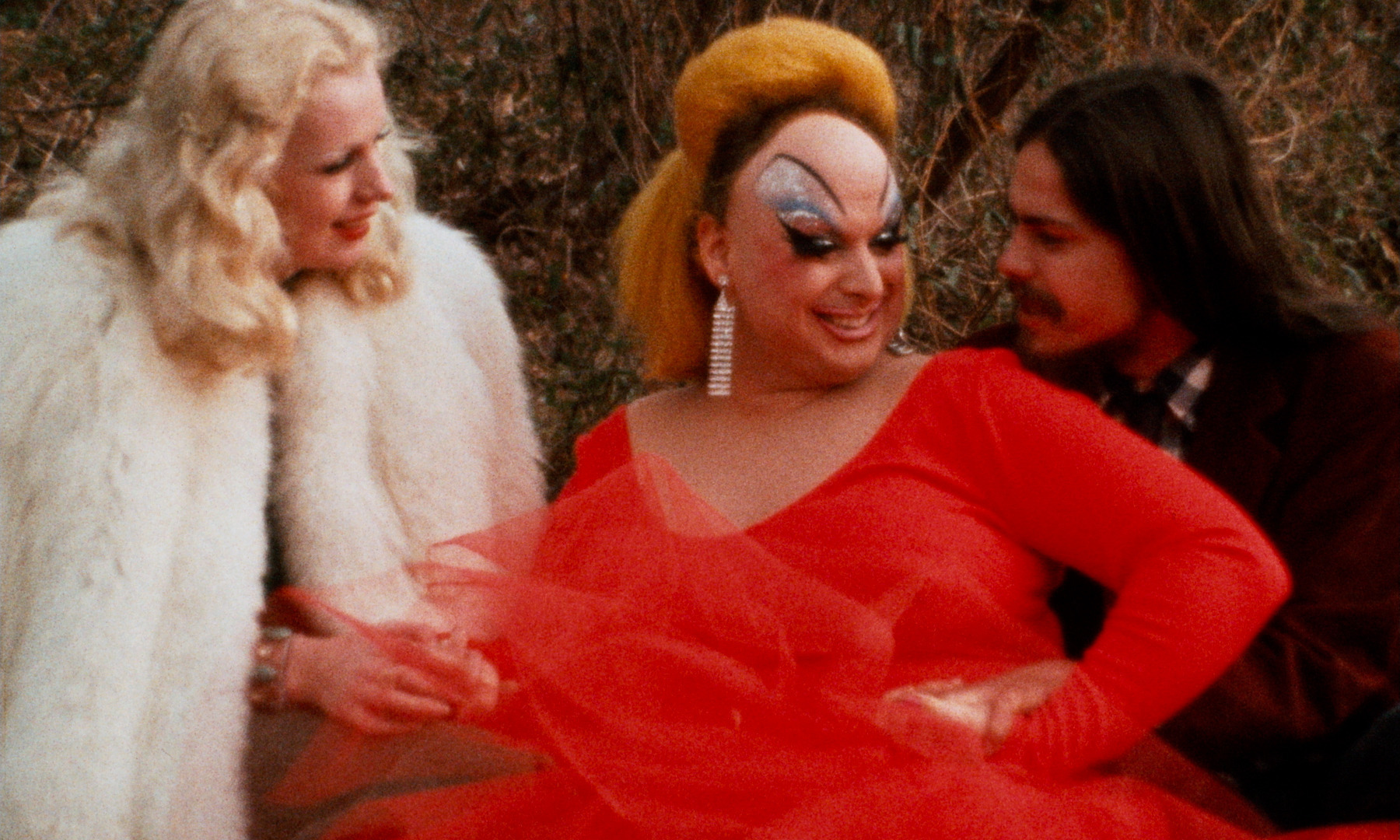RELATED ARTICLE
Polyester: The Perils of Francine
The Criterion Collection

Like Carl Dreyer’s The Passion of Joan of Arc or Robert Bresson’s The Trial of Joan of Arc, John Waters’ Pink Flamingos (1972) depicts a visionary’s trials, faith, and ultimate sanctification. But the film, which follows the comic quest of Divine—the name of both actor and main character, Waters’ icon of beatific turpitude—turns the concept of transcendence inside out. Here, Divine’s calling is to be acknowledged as “the Filthiest Person Alive,” hers is the Church of the Supermarket Tabloid, and her banner flies for deviants of every cracked fetish and persuasion under the midnight sun.
Of course, a Grand Canyon–size chasm separates the Maid(s) of Orleans and a Baltimore slum goddess in Ming the Merciless drag. (Since Bresson bemoaned Dreyer’s “grotesque buffooneries”—a nifty summation of Waters’ raison d’être—maybe it’s more of a three-way gap.) But deep down, when all is said and burned, aren’t Joan and Divine both just mixed-up demoiselles from the sticks, following their inner voices to a rendezvous with immortality? Doesn’t Waters perfectly sum up that shared essence in the sublime Little Richard rave-up he appropriates for Divine in Pink Flamingos, “The Girl Can’t Help It” (title song of the eyeball-popping Jayne Mansfield/Frank Tashlin collaboration he’s paying homage to)?
Waters and Divine certainly couldn’t help it. Starting from breathtakingly smart-ass stunts like staging a home-movie reenactment of the John F. Kennedy assassination in the short Eat Your Makeup (1968, with Divine, of course, as Jackie Kennedy), Waters assembled a photogenic stock company of dropouts, delinquents, and weirdos. Building on the anarchic playpen wallow of his first feature, Mondo Trasho (1969), and the more cultivated acid-trip finishing school that was Multiple Maniacs (1970), by Pink Flamingos Waters had developed a viable aesthetic: rattling, spasmodic, and expressively incongruous.
And Divine had blossomed into a mesmerizing screen presence: the voracious alter ego of Harris Glenn Milstead was Liz Taylor at her most domineering crossed with Mansfield, the women of Faster, Pussycat! Kill! Kill!, and Godzilla. Larger-than-life yet somehow anchored in the little matter-of-fact behaviors of a doting mom and daughter, Divine’s performance in Pink Flamingos is a whole universe unto itself. Terms like drag and transgression are inadequate to describe her hip-swiveling force field of appetite, narcissism, and mutant tenderness.


